

The Dark Side of Tourism during ITB
World Tourism Network on Child Protection invites to public event during ITB Berlin.
The upcoming ITB trade show in Berlin, Germany is not only the largest travel and tourism event in the world, but also the place to show support in the fight against exploitation of children through tourism.
The United Nations World Tourism Organization will recognize the importance of this issue for world tourism on March 9, 2017 15.00-16.30- at a public event at Room M1, City Cube, Berlin Congress Centre.
eTN Publisher Juergen T Steinmetz has been a member of the UNWTO task group for almost 10 years and will be looking for best practices and initiatives to share with eTN readers on how government, private companies and anyone else helps to combat this dark issue in tourism and is extending a special welcome to eTurboNews readers to attend.
The UNWTO’s Child Protection Network serves as a platform for tourism stakeholders to exchange good practices and discuss the most pressing challenges in curbing child and youth exploitation in the tourism sector, including sexual exploitation, child labour and trafficking. The Network draws together governments, the tourism industry, international organisations, non-governmental organisations (NGOs) and media associations.
Under the guiding principles of the Global Code of Ethics for Tourism, the mission of the World Tourism Network on Child Protection is to support efforts to protect children from all forms of exploitation in tourism. Although its main focus is the protection of minors against sexual exploitation, it encompasses the issues of child labour and the trafficking of minors. Its principle objectives are:
• to raise awareness among the tourism sector, governments and tourists;
• to encourage the tourism industry to engage in ethical practices, particularly by adopting professional codes of conduct and other self-regulatory measures;
• to invite governments to take administrative and legal measures, such as the designation of focal points (contact persons) within their national tourism administrations, the establishment of emergency hotlines, the strengthening of national legislation and the improvement of law enforcement;
• to encourage cooperation between the public and private sectors, as well as between tourist generating and receiving countries; and
• to monitor the fight against the sexual exploitation of children in tourism networks at both the national and international levels.
This year’s meeting at ITB will highlight the most successful initiatives championed by the governments, particularly by national tourism administrations, thus paving the road for tourism destinations to lower the extent of vulnerability of child and youth.
The event will also establish linkages with the Int’l Year of Sustainable Tourism for Development 2017 by illustrating good practices that improve livelihoods of children.
UNWTO Secretary General Taleb Rifai will deliver introductory remarks together with Ms. Carol Bellamy, Chair of the World Tourism Network on Child Protection.
Participants will hear from
H.E. Mr. Najib Balala, Minister of Tourism, Kenya
Mr. Tokiaritefy Rabeson, General Director of Tourism Development, Ministry of Tourism, Madagascar
Ms. Magdalena Montero, Adviser to the Minister of Tourism of Uruguay, Representative of the Regional Task Force for the Protection of Children in Travel and Tourism of the Americas (GARA)
H.E. Ms. Kobkarn Wattanavrangkul, Minister of Tourism and Sports, Thailand
Ms. Khin Than Win, Deputy Director General, Ministry of Hotels and Tourism, Myanmar
Mr. Mohamed Basheer, Chief Inspector, Head of Family and Child Protection Department, Maldives
Police Service, and Ms. Alice Akunga, Country Representative for Maldives
Ms. Clare Jenkinson, Senior Destinations & Sustainability Manager, Association of British Travel Agents – ABTA
Mr. Amitava Bhattacharya, Founder and Director, banglanatak.com- Social Enterprise from West Bengal, India
Ms. Joanna Rubinstein, President & CEO, World Childhood Foundation USA and Board Member of the Global Partnership to End Violence Against Children
Participants have the opportunity to interact and ask questions.
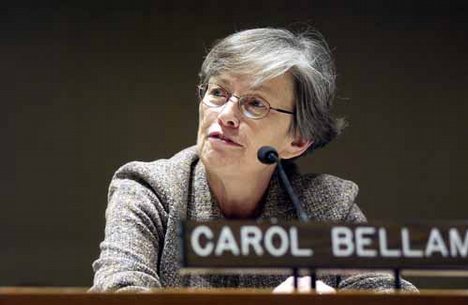
Carol Bellam, Chair of the UNWTO Children’s Network has a message to share
Carol Bellam is chair of the UNWTO Children’s Network
eTN publisher Juergen T Steinmetz had represented the global media on this network for many years. Carol is explaining the role of our Network in addressing the pressing challenges of child protection in tourism on this video.
The video was shot on the occasion of the 17th meeting of the World Committee on Tourism Ethics held in April in Madrid
Carol Bellamy briefed the Ethics Committee oat ITB 2016 and expressed the need to harness the great potential of expertise and best practices championed by the members of the ExCom.
The findings of the Global Study were also conveyed to the Ethics Committee members so they would be able to engage into more research-based advocacy within their respective sectors.
The facts and figures outlined in the Global Study are currently being shared with tourism ministers globally through UNWTO Regional Commission meetings, which should hopefully instigate political decision makers to undertake more concrete preventive actions within their countries.
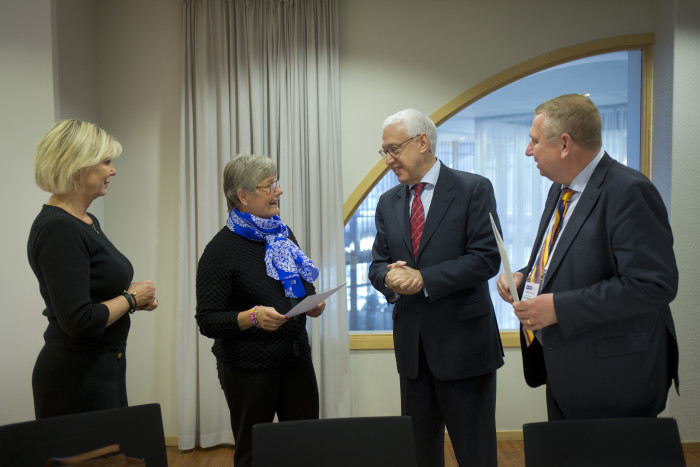
Swedish private sector commits to the UNWTO Global Code of Ethics for Tourism
Visita and Svensk Turism AB have become the latest private sector signatories to the UNWTO Global Code of Ethics. The signature of the commitment to the Code took place on the occasion of Sweden’s Hospitality Industry Congress, held in Gothenburg (17 March 2016).
By adhering to the Code, the private sector signatories commit to respect its principles; to promote the Code among its partners, providers, staff and clients, making sure that its provisions are known and respected as far and wide as possible; and to report to the World Committee on Tourism Ethics on the measures taken to implement the Code.
As stated by Márcio Favilla, UNWTO Executive Director for Competitiveness, External Relations and Partnerships, on the occasion of the signature “tourism’s exponential growth in recent years comes with increased responsibility for all and this is why today’s commitment is so important; the UNWTO Global Code of Ethics constitutes the most efficient tool to channel corporate responsibility commitments towards our society and communities.”
“Travel to Sweden is becoming more and more popular among tourists from Europe as well as for those traveling from long-haul markets such as Japan, China, India, Russia and the USA. Cooperation with UNWTO highlights Sweden’s commitment to being a responsible, sustainable and attractive destination”, said Maud Olofsson President of Visita. Eva Östling, CEO of Visita, added that “tourism is one of Sweden’s most important industries with an export value of 97 billion SEK. But the potential is much higher. The goal is to double this in ten years”.
Magnus Nilsson, President of Svenk Turism said “now we’ll insert the UNWTO Global Code of Ethics for Tourism in the Swedish tourist industry’s national strategy. With a focus on sustainability, we will work towards ensuring that by 2020 Sweden is the natural destination for the global traveler”.
The UNWTO Global Code of Ethics for Tourism is a comprehensive set of principles designed to guide key-players in tourism development. Addressed to governments, the travel industry, communities and tourists alike, it aims to help maximise the sector’s benefits while minimising its potentially negative impact on the environment, cultural heritage and societies across the globe. Adopted in 1999 by the General Assembly of the World Tourism Organization it was acknowledged by the United Nations in 2001.
The relevance that the private sector can have in promoting a more responsible tourism sector, lead UNWTO to develop since 2011 the Private Sector Commitment to the Code. As of January 2016, 451companies and associations from 64 countries –from airlines and hotels, to tour operators and associations– have joined the commitment to uphold ethical standards and ensure the implementation of the Code in their operations.
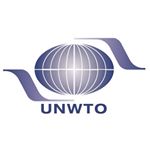
Private sector committed to fight child exploitation in tourism
The 31st Meeting of the World Tourism Network on Child Protection, held on the occasion of ITB Berlin, focused on the role and initiatives of the private sector to fight Child Exploitation in tourism. Awareness raising, training of staff and the implementation of measures along the whole value chain of tourism were pointed out as critical.
“We need to unite to fight child exploitation and the commitment of the private sector is key” said UNWTO Secretary-General opening the meeting.
Carol Bellamy, Chair of the Network, recalled the role of the Network as a platform to share research and good practices in the fight against the exploitation of children in tourism.
At the meeting, the Chair of the High Level Global Task Force to End Sexual Exploitation of Children in Travel and Tourism, Najat Maalla M’jid, shared the first findings of the Global Study carried out by the Task Force. Lack of reporting, weak legislation and the anonymity of the Internet were pointed out as some of the main challenges in child protection from sexual exploitation in the sector. The report aims to also address the chronic lack of robust evidence and comparable data on this issue.
The Association of British Travel Agents (ABTA) stressed the importance of providing training to the staff on how to identify possible situation of child exploitation as well as dealing with new emerging trends in the sector such as ‘voluntourism’ while the TUI Group shared their initiative ‘A collective NO to sexual exploitation of children in holiday destinations initiatives to promote the inclusion of measures to prevent and fight the exploitation of children within the whole tourism value chain including actions on training, awareness raising among host communities
Other initiatives presented included a project from the Network of Strategic and International Studies which evaluates best practices from around the world and work of the Airline Ambassadors International which focus on training airline professionals to flight human trafficking.
The World Tourism Network on Child Protection is an open-ended network facilitated by UNWTO featuring the multi-stakeholder participation of a range of tourism stakeholders – governments, international organisations, non-governmental organisations (NGOs), tourism industry groups and media associations. Its mandate is to prevent all forms of youth exploitation in the tourism sector (i.e. sexual exploitation, child labour and child trafficking). The Network’s meetings, held annually at the worlds’ foremost Travel and Tourism Fairs, serve as a platform to exchange experiences and best practices, present awareness-raising materials and capacity building tools, and promote the adoption of professional codes of conduct or other responsible practices in line with the UNWTO Global Code of Ethics for Tourism.
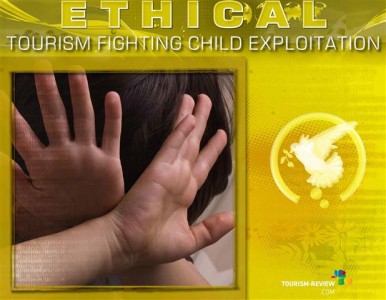
UNWTO on child exploitation: Nothing more than lip service?
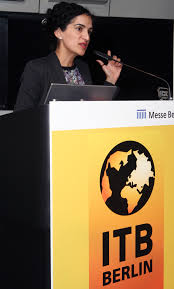 Tourism leaders around the world are pledging support to this initiative, and many voices of support have been heard over several years by a large contingency of world leaders and the United Nations World Tourism Organization (UNWTO).
Tourism leaders around the world are pledging support to this initiative, and many voices of support have been heard over several years by a large contingency of world leaders and the United Nations World Tourism Organization (UNWTO).
Alain St.Ange, the outspoken Seychelles Minister of Tourism and Culture, talked with UNWTO Wire on behalf of the newly-started Indian Ocean Vanilla Islands Organization on the topic of child exploitation in tourism.
Q: You were the founding President of the Indian Ocean Vanilla Islands – talk to us about your stand on child exploitation in tourism
Alain St.Ange: “It is sad that in this day and age, we are still talking about child exploitation, but the fact remains that this practice is still being promoted in different parts of the world and in different surroundings. As a region with tourism as its key industry, the Indian Ocean Vanilla Islands condemns child exploitation in tourism. Tourism is a people’s industry and remains an industry where respect must always be seen as the guiding strategy. The beautiful pictures of our dream islands would be artificial if underneath the surface, our innocent children were being exploited.”
Q: Do you personally condemn child exploitation in all its forms?
St.Ange: “To this pointed question, I simply answer with an unequivocal, “YES,” and I invite every Minister of Tourism to also openly make this statement.”
What has the World Tourism Network on Child Protection formerly the UNWTO Task Group against exploitation of children through tourism been doing over the many years this group has been in place?
eTN Publisher Juergen Steinmetz has been a member of this task group for almost a decade. He said: “We first had our task group meeting once a year in London during the World Travel Market (WTM), and once a year in Berlin during ITB. Several years ago, however, this was reduced to one yearly meeting during ITB only.
“All of us are dedicated volunteers or government officials and believe in this cause. I always paid my own way to travel to the other side of the world for this annual meeting, and donated my time, because I believed in this cause. I am sure this is the case with everyone else in our international group. “
“It is important for UNWTO as a United Nations agency to endorse and support the many global initiatives to fight this crime. Unfortunately, besides small talk, some excellent presentations, and a lot of lip service by UNWTO leaders, there has not been anything done by this group yet to be proud of.
For the last 5 years, this task group has been promised a budget of $5,000 to be used to showcase best practices on the official UNWTO website. Another proposed initiative was to establish a communication tool allowing task group members to communicate with other members of the group and to UNWTO officials. It has never been established. The webpage on unwto.org also was never established. The excuse: There is no staff and no money to maintain such an initiative. ”
Steinmetz went on to say: ” I applaud for UNWTO to hold this meeting, and to join THE CODE, but a lot more has to be done together with member countries, the World Travel and Tourism Council, (WTTC) PATA, ETOA and other credited leaders of our wonderful and money making industry.”
“I brought in this initiative, and it was seconded by every member of our group. Yet, here we are 5 years later, and still no funds have been made available so that we can move forward. Every year, I publicly voiced my criticism and confusion about the role of our UNWTO Task group, only to receive no response whatsoever. And then another year would go by, and we would be meeting at ITB again a year later in the same starting position, with no progress having been made.”
“Let us hope that ITB 2016 will mark not only 50 years ITB Berlin and a showcase of this billion-dollar travel industry, but also the beginning for UNWTO to finally put some resources behind this initiative and allow this task group to at the very least endorse some positive initiatives that can shared with the world. Incredibly, this task group has been in existence for 31 meetings, and this situation is quite embarrassing and shows it’s definitely not a priority by the UNWTO leadership as always proclaimed.”
“I will not be part of this group in 2017, if after the conclusion of ITB 2016, we don’t hear anything again for another full year. Protecting our children should be a top priority for the United Nations World Tourism Organization and the governments that make up this global group. i don’t think $5000.00 should stand in the way to endorse and share so many excellent activities by private groups, governments, police to combat this crime. I don’t want our industry to conspire with those that target our children for unspeakable acts committed within our great industry. A billion tourists and finding $5000.00 is not possible – this cannot be true.”
Even worse, entire industries had been absent from these meetings. For example, the billion Dollar Cruise Industry didn’t want to have any part of it and none of the cruise companies had any desire to include one of them to join the UNWTO Task Group.”
UNWTO Wire has reached out to UNWTO officials for comments, but so far no response has been received.
UNWTO will hold the 31st meeting of the World Tourism Network on Child Protection (March 10), when an initiative will take place to prevent all forms of child and youth exploitation in the tourism sector. Under the chairmanship of Carol Bellamy, the Chair of the Network and former Executive Director of UNICEF, the meeting will focus on Responsible Business Strategies and Child Protection in Tourism, highlighting the good practices championed by the tourism industry. The event will feature interventions from ABTA, TUI Group, and the Chair of the high-level global Task Force for the Protection of Children in Tourism, Najat Maalla M’jid, who will share the results of the Global Study on Sexual Exploitation of Children in Travel and Tourism.
